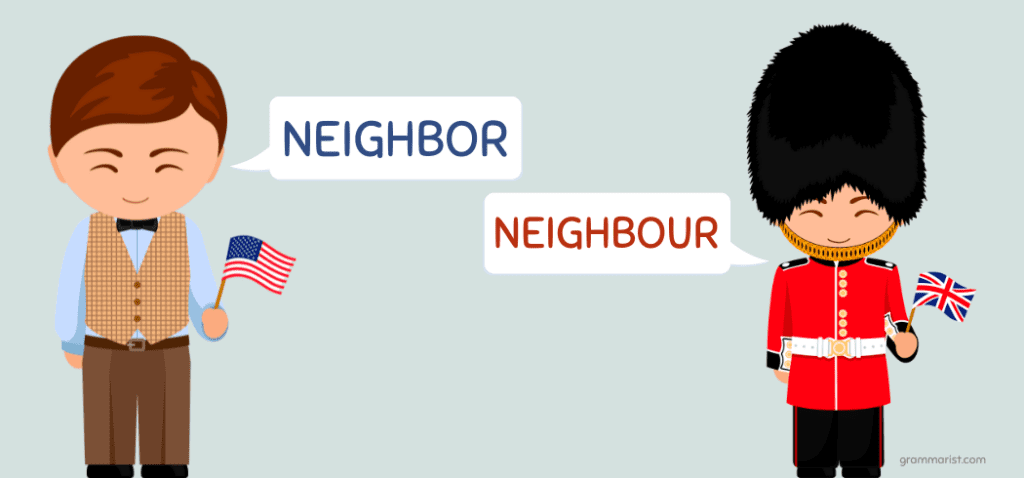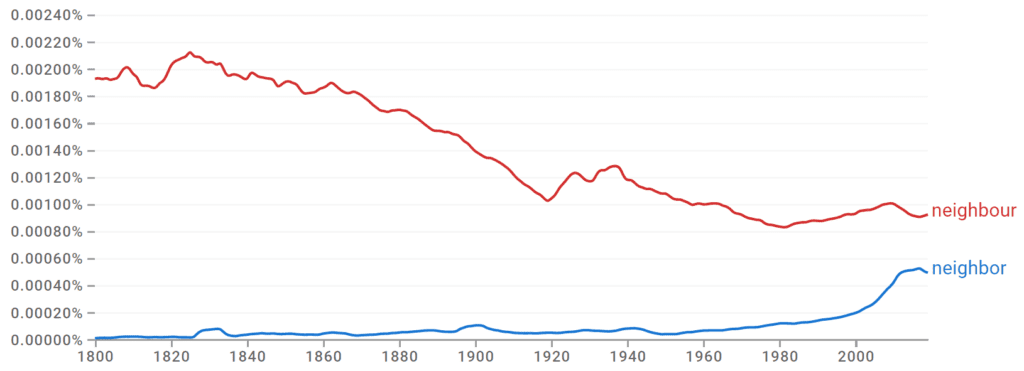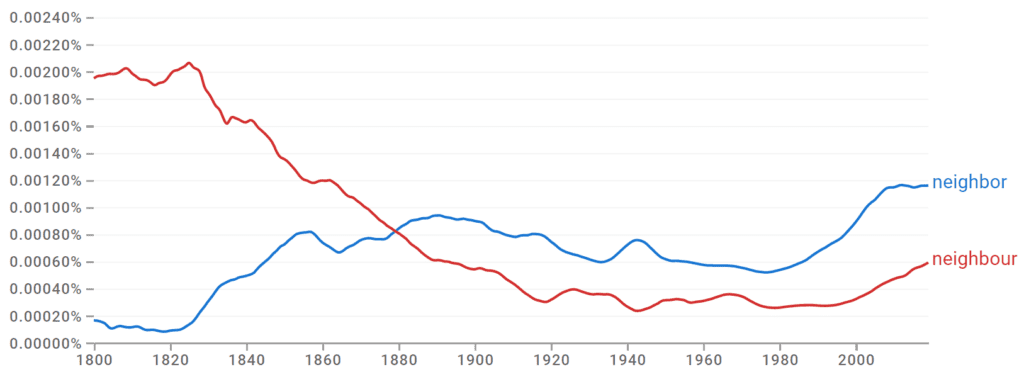Because the English language is a mix of several languages and borrowed terms, we often get confused when there are multiple spellings of a word. Take “neighbor” and “neighbour,” for example. Which one is correct?
As a Canadian, I see this argument all the time. The short answer is both are correct, but there’s more to it than that. Let’s take a look and determine which spelling you should use.
Meaning of Neighbour or Neighbor: What’s the Difference?
Even though there are two different spellings, “neighbour” and “neighbor” have the exact same meaning. You’d use both of these words when you’re referring to someone who lives near or next to another person.
You can also use “neighbour” and “neighbor” in a broader sense, like when talking about countries next to each other. But, again, the version you use just depends on the region you’re writing to.
How Do You Spell Neighbor?
The correct spelling of “neighbor” always varies depending on whether you’re using American English or British English. It’s as simple as that. When using American English, you should spell the word ‘neighbor’ without the U. For British audiences, it’s spelled “neighbour” with the U added in.
Both of these spellings are technically correct, and you can use them interchangeably, but just remember the audience you’re writing to because there are preferences for American, Canadian, and UK readers.
“Neigbour” was once the original spelling and more common of the two, but “neighbor” has surpassed it in popularity in recent years.
Neighbourhood or Neighborhood?
The same rules apply here when talking about the area where neighbors live. “Neighbourhood” is in British English, and “neighborhood” is in American English. You’d use either of these when referring to the community or area containing several neighbors.
Is Neighbor Singular or Plural?
Whether using “neighbor” or “neighbour,” the word is considered a singular noun. If you’re looking for the plural form, it’s “neighbors” in American English and “neighbours” in British English.
How to Pronounce Neighbor
The words “neighbor” and “neighbour” are meant to be pronounced the same way, even though they’re spelled differently. You say it as nay-buhr.
Neighbour and Neighbor Examples in a Sentence
I’ll show you a handful of sentences that use the alternative spellings so you can see how it doesn’t make a difference to the context.
Using “Neighbour” in British Spelling
- Our new neighbours moved in last week, and they seem like a lovely family with two kids the same age as ours.
- Mandy borrowed a cup of sugar from her neighbour so she could finish baking her friend’s birthday cake.
- The relationship between the two neighbouring countries has improved significantly in recent years thanks to the trade agreement for goods and services.
- My husband and I went to a community meeting in our neighbourhood to discuss local issues we’re concerned about.
Using “Neighbor” in American Spelling
- My next-door neighbor’s giant dog barks loudly every morning, making it impossible for me to sleep on my days off.
- Charlie stays behind after school to play with the neighborhood kids on the school’s playground.
- The two neighboring provinces of Alberta and British Columbia have a friendly rivalry when it comes to sporting events.
- We’re very grateful for the neighborhood watch program that’s helped reduce crime in our area.
Be a Good Neighbor
So, just remember that when you see a word with a spelling difference but the same meanings, it’s often because they’re spelled differently depending on the country. “Color” and “colour” are another great example of this, with the use of “our” being more common in Canada and the UK and the shorter version always the preferred spelling in America.
Enjoyed reading about spelling? Check out some others we covered:





Comments are closed.